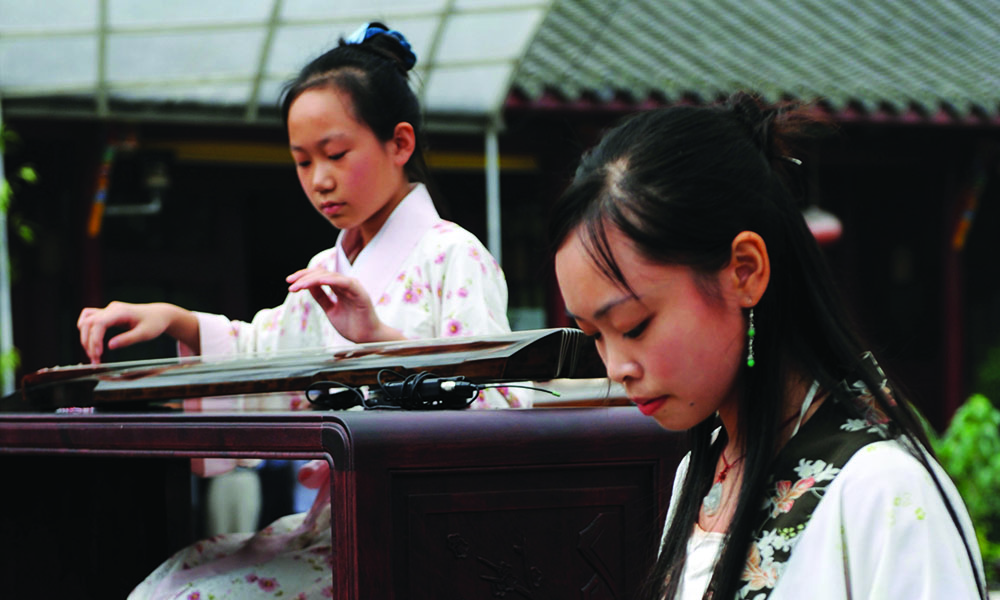By Leo Timm,
One of the very first pieces of recorded Chinese literature is the “Classic of Poetry”, a collection of 3,000-year-old lyrics and verses of the early Zhou Dynasty. Compiled by Confucius, it is considered one of the five great Chinese scholarly works.
The first poem, “Cry of the Ospreys,” describes the marriage of King Wen, the first Zhou ruler, to his queen Tai Si. Flutes and drums and bells guide the royal couple to their union, which was understood to have been ordained by Shang Di, the emperor of heaven.
Music played a central role in pre-imperial Chinese religious rites as well as folk culture.
Confucius admired the early Zhou (1046 B.C.—770 B.C.) for its virtuous governance and upright culture, expressed in the maintenance of ritual or propriety, known in Chinese as “li”. For traditional Chinese, who saw the family as the basic unit of society, the prosperity of a royal or imperial house hinged on marriage. It was said that a half-divine sage ruler of Chinese legend, Fu Xi, had established civilisation through the creation of marital rites.

Li, covering ritual, propriety, and etiquette, is the third of five cardinal virtues taught by Confucius. This ideal is often seen discussed in tandem with Chinese musical theory, as recorded in conversational texts compiled by the sage’s disciples.
The other four cardinal virtues are benevolence, righteousness, wisdom, and faith. What sets li apart from the others is its emphasis on human conduct, as opposed to the cultivation of more abstract or intrinsic virtues.
The foundation of li, as the foundation of filial piety, lies in the veneration of heaven. Beginning in the Zhou Dynasty, about 500 years before Confucius, the Chinese worshipped Shang Di, a sky deity whose title translates to the Lord on High and whom some Christian missionaries in China rendered simply as God.
‘Guiding the People Through Ritual and Music’
Just as Western theatre developed from ancient Greek festivals held in honour of the gods, China’s etiquette and music originated in the religious rites meant to maintain bonds between the human and divine realms.
Music played a central role in pre-imperial Chinese religious rites as well as folk culture. While in today’s modern vernacular Chinese language uses li as a catch-all term referring to etiquette and manners, in classical understanding, it encompassed the entire spiritual pantheon, of which music was a part.
















